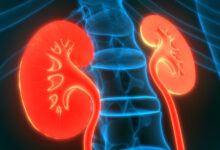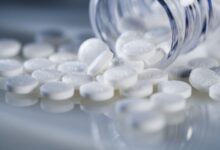Cancer Screenings

5% of all cancers are detected during screening. Cancer that is detected by screening means cancer that is detected at such an early stage that it often causes no symptoms. It is not possible to talk about being completely cured in a cancer patient most of the time, but a cancer that is detected at an early stage without any symptoms is much more likely to be cured.
For this reason, scanning programs should come into a routine. In general, cancer screenings are done for breast, cervical and colon cancers. After being in discussions for prostate cancer and lung cancer for a long time, we can say that cancer screening should be done more clearly for a while.
Breast Cancer Screening
Breast self-exam is the most basic part of breast cancer screening. At first, it may not be understood much because the self-channel structure of the breast is palpable. It should be done regularly after the age of twenty.
First, the skin and shape of the breast should be checked both standing and lying down. It should be controlled by first applying light, then medium and strong pressure with the inner part of the three fingers of the hand. A doctor’s examination should be done annually after the age of 35, and mammography should be performed every two years, starting between the ages of 40-50, depending on whether there are risk factors or not.
Cervical Cancer Screening
HPV, also known as Human Papillomavirus is the most common cause of cervical cancer today. For this reason, looking for the presence of HPV in the smear test, in which the cells in the cervix are collected and examined, is the test that should be done for screening.
If the presence of HPV cannot be shown in the smear test, if the probability of cervical cancer in the 5-year period is low, it is sufficient to repeat the smear every 5 years. If HPV is positive, it is necessary to repeat the smear test every year.
Colon Cancer Screening
Occult blood in the stool is investigated. After the age of forty, it should be repeated every 2 years. Even if occult blood in the stool is negative, colonoscopy is performed at certain intervals after the age of 50. If there is colon cancer in the family, screening should start earlier.
Prostate Cancer Screening
Prostate cancer can remain without symptoms for years. For this reason, there has always been a debate in the oncology community for years whether detecting the presence of cancer with screening causes unnecessary treatment of a cancer that will remain silent for years. But recent analysis shows that screening is important.
Prostate-specific antigen, which we call PSA, is an enzyme secreted by the prostate and provides the consistency of semen. In diseases of the prostate, its level in the blood rises. Its height does not mean definite cancer, the diagnosis must be confirmed by biopsy.
Lung Cancer Screening
Smokers should have a chest X-ray every year. Low-dose lung tomography is recommended for the 55-75 age group who smoked an average of one pack a day for 30 years or two packs a year for 15 years.
When you apply to our clinic for cancer screening, first of all, your life style, family history, and complaints, if any, are evaluated, your physical examination is done, and which tests should be decided, and you are directed to the relevant physician and tests. We would like to remind you that annual screenings (check-ups) in hospitals are not cancer screenings.








